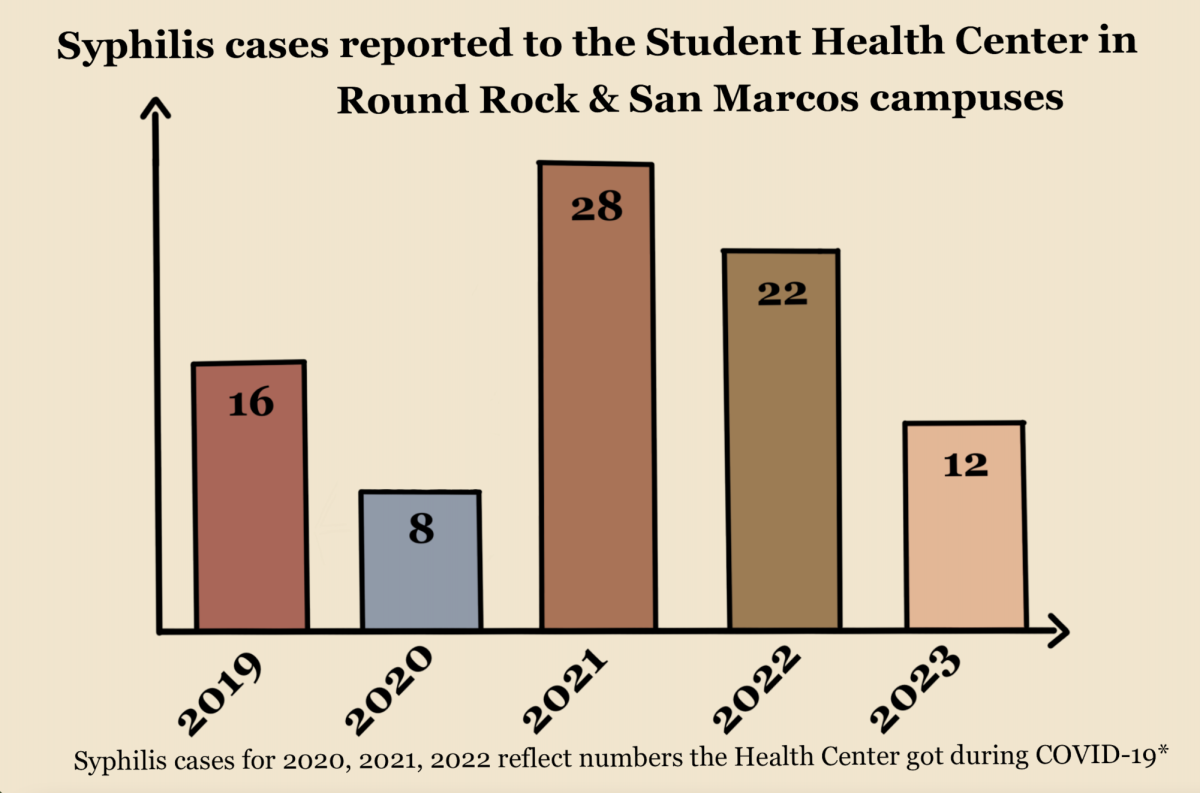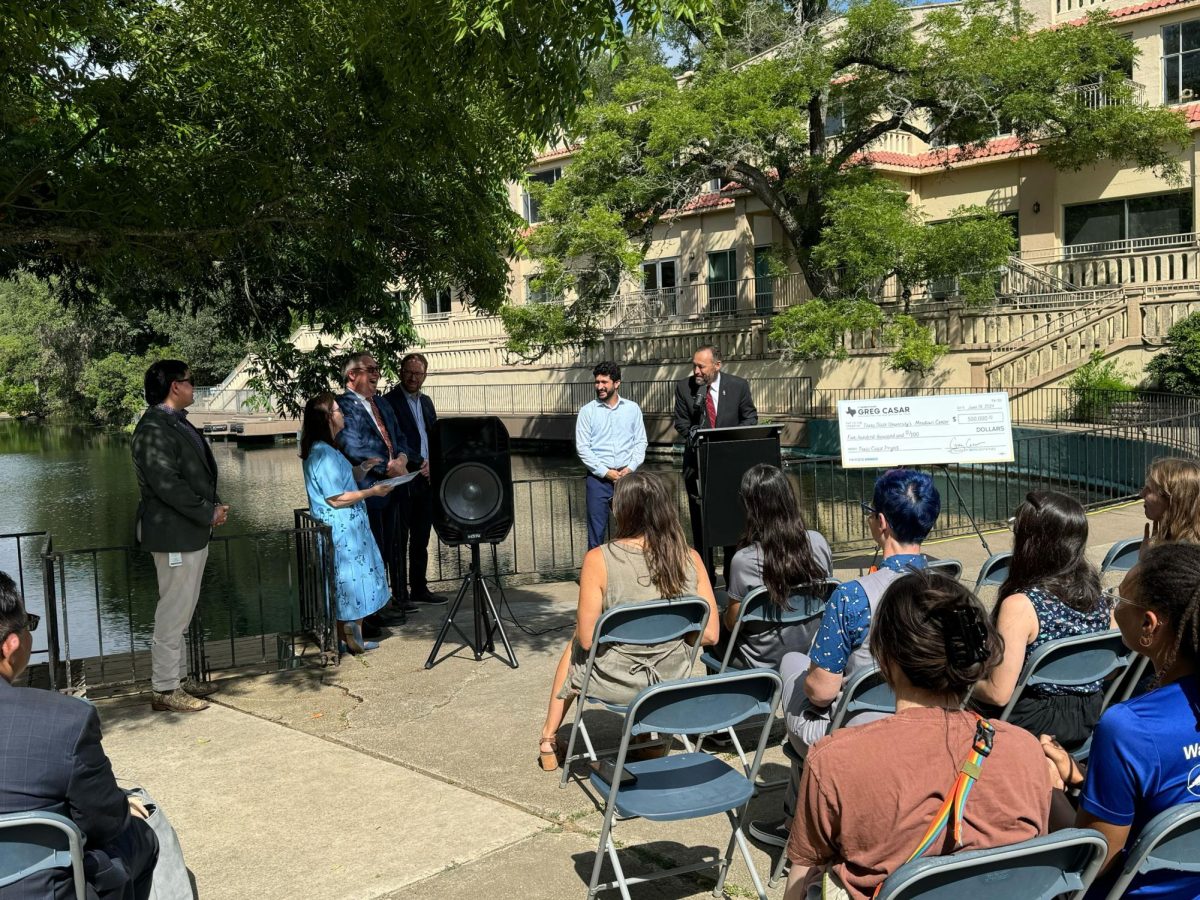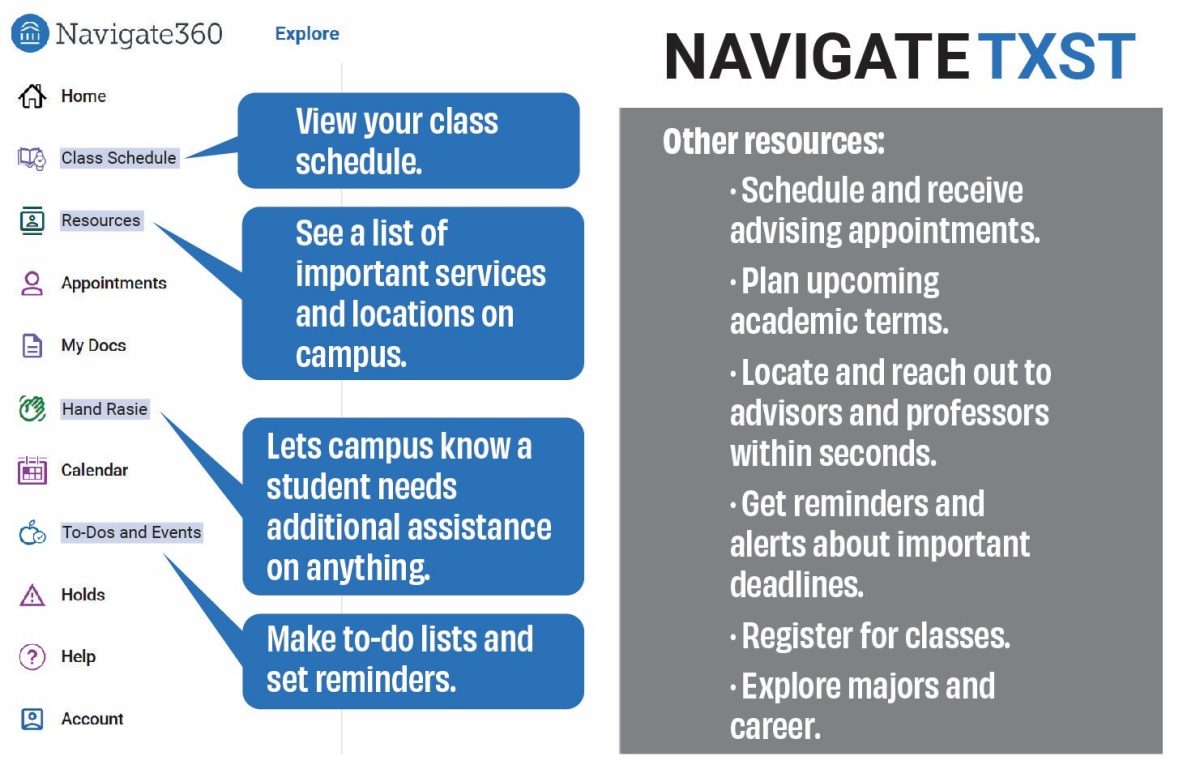A report from the CDC shows syphilis, a Sexually Transmitted Infection (STI), rose by 80% nationwide between 2018 and 2022. This increase is affecting Texas State students.
Dr. Sarah Doss, the interim director for the Student Health Center, said on-campus syphilis cases were almost unthinkable when she began her employment at Texas State in 2010, but are now becoming more common.
“We probably match the national trend,” Doss said. “[The CDC] started to really see [syphilis case] numbers increase in about 2018.”
According to the CDC syphilis, which is caused by the treponema pallidum bacterium, can cause symptoms such as sores, rashes, fever, sore throat, fatigue and more. Syphilis can also cause complications during pregnancy.
According to Doss, the Student Health Center detected 86 cases of syphilis from 2019 to 2023. The highest number of cases was 28 in 2021. 12 cases were detected in 2023.
According to Doss, while the numbers show a decrease across the years, it is unusual to see any syphilis cases on campus. Doss said Texas State does not reflect national trends due to a student population of less than 100,000.
“The numbers do not include numbers from any clinic outside of the university,” Doss said. “There may be other cases in the community that are not counted [by the Student Health Center].”
James “Matthew” Bishop, assistant professor in the Department of Health and Human Performance said there could be numerous causes for the reported rise in syphilis cases, such as an increase in testing, a growth in “risky sexual behavior” or the renormalization of social interactions after COVID-19 lockdowns.
According to Bishop, there are two main ways to decrease the chance of contracting an STI: abstaining from sex or using a barrier contraceptive such as a male or female condom during any sexual activity.
“Using a barrier like a condom can reduce the risk substantially,” Doss said. “It doesn’t take the risk to zero; there are still infections that can be transmitted even when there’s a barrier used.”
Doss said other STIs such as the Human Immunodeficiency Virus (HIV) can often coexist with syphilis.
Bishop said regular testing is key to catching syphilis and other STIs, allowing for medical treatment before the disease progresses to more serious stages. He recommends getting tested before and after each new sexual partner.
“If you start a new relationship get tested before the relationship ends, [then] you get tested after and then maybe even a couple months after because some STIs will potentially take a couple of months to show up on tests,” Bishop said.

Doss said the Student Health Center recommends getting tested for chlamydia, gonorrhea, syphilis and HIV once a year.
“Syphilis is a complicated infection because it can cause different symptoms depending on how long you have had it,” Doss said. “But the truth is most of the cases we diagnose are not because someone had felt sick or had symptoms. Most of the cases we diagnose are people being proactive.”
Alicia Rosas, a health promotions specialist and an advisor for Healthy Cats, said the stigma surrounding sexual health could be a barrier to discussing, testing and treating STIs.
“There may be the stigma that STIs are something to be ashamed of or they’re dirty,” Rosas said. “It’s just something that happens, it’s part of life.”
Rosas, along with Health Promotions and Healthy Cats regularly give presentations on sexual health for students. Rosas said the presentations can be especially helpful for those taught abstinence-only sex education and who may be unaware of safe sexual behaviors.
After sexual health presentations, Rosas and her team often hand out sexual barriers, such as internal and external condoms or dental dams that can reduce the chance of STIs.
Student organizations and professors can schedule one of Healthy Cats’ sexual health presentations, titled “Sex, Lies and Chocolate,” on the Health Promotion Services website.
For students who do not display any STI symptoms but wish to get tested, they can call 512-245-2161 and for students displaying symptoms and needing treatment for an STI, they can make an appointment on the Student Health Center website.






























